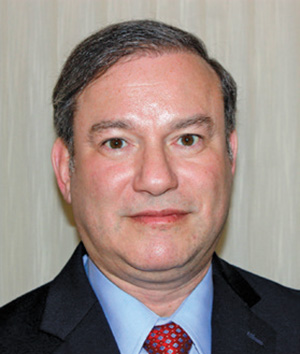
It was the highlight of the inauguration ceremony. Moshe was ruler of Israel. Aaron was in his finest robes as kohen gadol, presenting the sacrifices and blessing the nation. “The people saw this and sang glad songs… (Vayikra 9:24) Aaron’s two sons, Nadav and Avihu, probably with the best of intentions, entered the holiest area of the Mishkan meaning to offer the best incense ingredients they could think of. Then, tragedy struck. In an instant, they were consumed by a heavenly fire and died. This happened because they did not follow the instructions laid down by Hashem and thought they could improvise and do better themselves.
Aaron reacted by accepting the fate of his two sons. The verse tells us that he remained silent. Rabbanit Yemima Mizrachi points out that the silence of Aaron’s wife, Elisheva, must have been even more profound and, though not mentioned, speaks volumes. How were these bereaved parents able to stay strong and remain silent? What is the lesson for us to learn by their example?
Throughout the Tanach there are numerous examples of the pain caused by children and of things seemingly going inextricably wrong. The Avot, our forefathers, all had children who either went “off the derech” or gave them grief. When King David was in his older years he was forced to flee for his life from his son, Avshalom, who had usurped the throne. Yet, he found the strength to accept his fate and still praise Hashem, as he did in Psalm 71. He was aware that even though man may not understand the ways of God, still one must maintain one’s faith and believe that everything is done for the ultimate good.
Aaron and Elisheva similarly kept silent in the face of tragedy. They did not blame God. Similarly, they did not blame themselves by making statements such as “Where did I go wrong?” or “If only I had done X, Y or Z.” The opposite of blame is emunah. When one has faith in Hashem, we are able to withstand the pitfalls of life, even when they do not seem to make sense.
This week’s reading coincides with parshat Parah, the laws of the red heifer. In Kohelet (7:23) King Solomon stated that he understood all of the Torah except for the concept of the Parah Aduma. It made no sense to him. The Gemara (Yoma 14a) similarly recounts a discussion between R’ Akiva and the rabbis where they make the point that the mysterious concept of the Parah Aduma defied logic.
The commentary Be’er Yosef suggested that the reason why the rationale of the Parah Aduma was withheld for now was to teach us the following lesson: In life, there are events that will occur that are inexplicable. We will never be able to understand them. We will come across things that are paradoxes, things that seem to have no rhyme or reason. Yet, we must learn to live with these events and accept them.
R’ Frand points out that in the time of the Temple, the laws of the Parah Aduma became practical when a person unfortunately had to deal with the death of a loved one or attend a funeral. Coming into contact with a dead body had relevance because one could not eat sacrificial meats, eat ma’aser or travel to certain places in Jerusalem until they became ritually tahor. The Parah Aduma ceremony took place many times a year, possibly daily. The Jew would walk in tamei and walk out tahor, while the kohen would walk in tahor and walk out tamei. While it made no sense, the Jew would be exposed and get accustomed to the paradoxes of life at a time when they had to deal with death.
The Gemara (Pesachim 50a) tells us that in the world to come we will no longer make the Baruch Dayan HaEmet blessing. Instead, we will only make the blessing Hatov v’Hameitiv on everything. Rashi explains that in the future there will no longer be any bad news because by then we will understand that even bad news is good. By then we will have learned the reason for the Parah Aduma.
May Hashem bless us, until then, so that we mostly hear besoros tovos (good tidings) and may He help us accept the other twists and turns on the highway of life.
By Rabbi Dr. Avi Kuperberg
Rabbi Dr. Avi Kuperberg is a forensic clinical psychologist in private practice. He is president of the Chai Riders Motorcycle Club of NY/NJ. He leads the Summit Avenue Shabbos Gemara shiur and minyan in Fair Lawn, and is a member of the International Rabbinical Society. He can be reached at Psychologist@Juno.Com.









